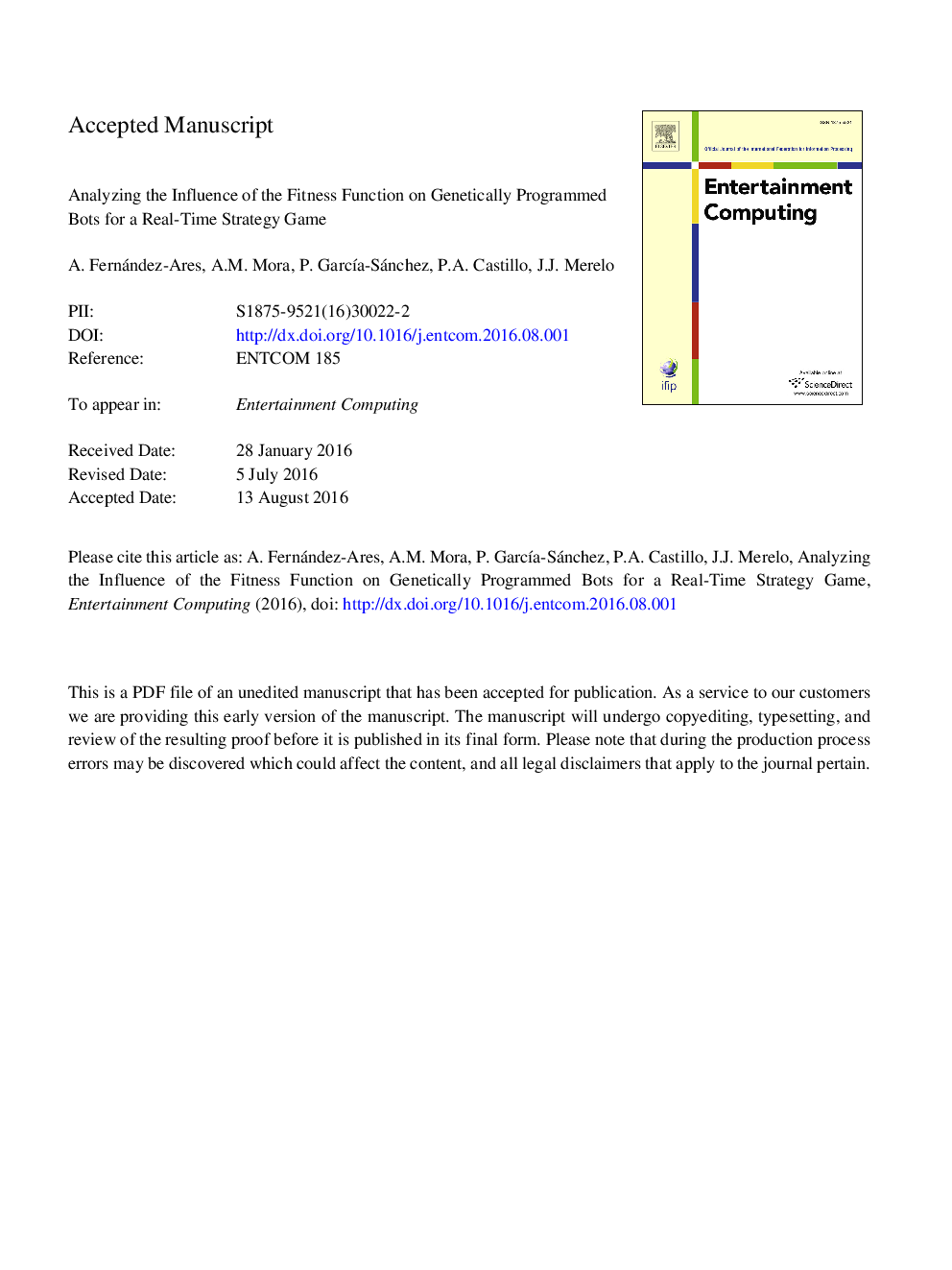ترجمه فارسی عنوان مقاله
تجزیه و تحلیل تأثیر عملکرد تناسب اندام در ربات های ژنتیکی برنامه ریزی شده برای یک بازی استراتژی در زمان واقعی
عنوان انگلیسی
Analysing the influence of the fitness function on genetically programmed bots for a real-time strategy game
| کد مقاله | سال انتشار | تعداد صفحات مقاله انگلیسی |
|---|---|---|
| 151502 | 2017 | 31 صفحه PDF |
منبع

Publisher : Elsevier - Science Direct (الزویر - ساینس دایرکت)
Journal : Entertainment Computing, Volume 18, January 2017, Pages 15-29
ترجمه کلمات کلیدی
بازی استراتژیک زمان واقعی برنامه نویسی ژنتیک، عامل مستقل، بت، عملکرد تناسب اندام، عدم قطعیت،
کلمات کلیدی انگلیسی
Real-time strategy game; Genetic programming; Autonomous agent; Bot; Fitness function; Uncertainty;

